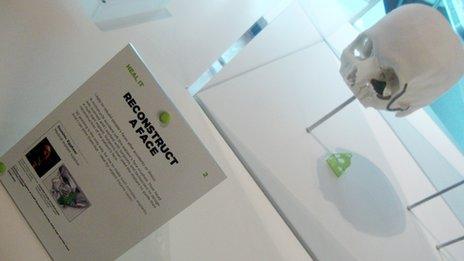NHS Wales urged to embrace 3D printing tech for implants
- Published
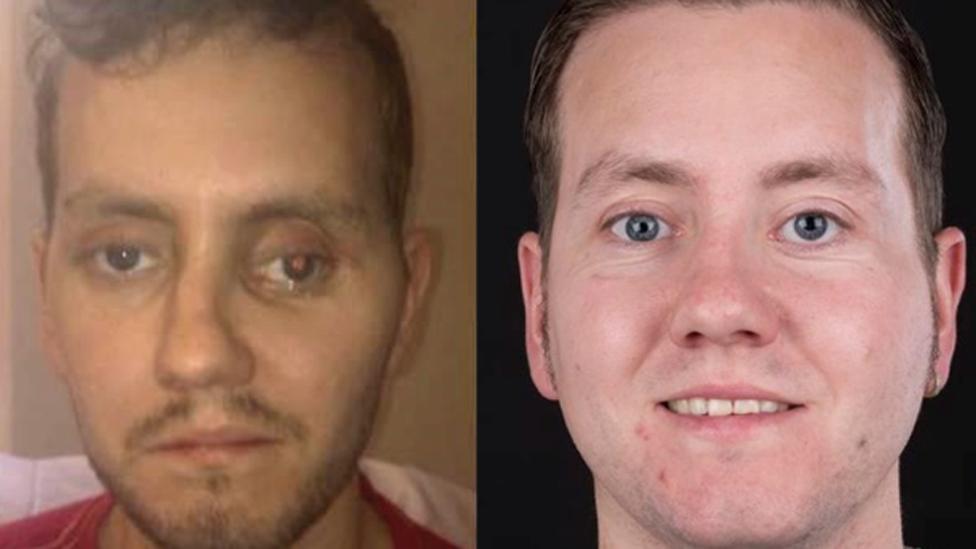
Stephen Power, whose face was reconstructed with the help of 3D print technology after a motorbike crash in 2012
NHS Wales needs to be ahead of the game in embracing next generation technologies to transform patient care, a leading surgeon said.
Adrian Sugar backed calls for funding for specialist hubs but said they had so far been knocked back.
He warned Wales could fall behind other countries if there are further delays.
Morriston Hospital in Swansea started working with 3D printing in 1999 and is one of the pioneers for facial reconstruction and using implants.
An independent commission said this was an example of how new technology could transform surgery for millions of UK patients.
Surgeons now use prosthetics printed out of wax, plates for limbs and heads printed out of titanium - at the old Bosch factory in south Wales - and plastic material for reconstruction after cancer operations.
How Stephen Power's face was rebuilt
The next stage is looking at the future potential 3D printing of human tissues, such as cartilage and bone.
The cost of current 3D printers is £300 and surgeons believe rolling out the technology to other hospitals will deliver better care - and save money.
FOUR WAYS TO TRANSFORM SURGERY
Robot-assisted and minimally-invasive surgery, meaning faster recovery times - including in heart and gynaecological procedures
Imaging (including virtual, mixed and augmented reality) and also patient-tailored implants from 3D printing
Big data, genomics and artificial intelligence will mean "precision" surgery, tailored to a patient's genes
Specialised interventions like developments in transplants and stem-cell therapies - as well as 3D-bioprinting of tissues and organs and creating more advanced prostheses.
Mr Sugar was a member of the commission set up by the Royal College of Surgeons (RCS), which wants funding for specialist hubs so the use of 3D printing technologies is more widespread.
His hospital already employs an additional person to plan 3D work for operations - the first of its kind in the UK.
"We recognise to go forward we have to have an expansion of what we have now, involving collaborations between surgeons, engineers and technicians."
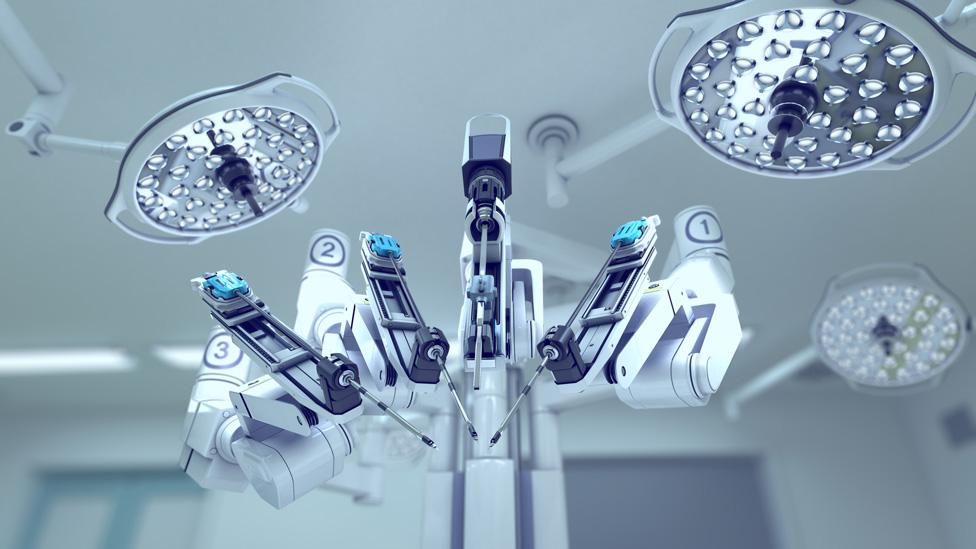
"These are technologies that will change the way we work - and we need to make those changes come about."
NHS Wales chief executive Andrew Goodall welcomed the RCS report, adding that investing in new treatments and pioneering digital technologies would help people live longer, healthier lives.
"It's imperative to our NHS's continuing success that it moves with the times to improve the health and prosperity of the people of Wales."
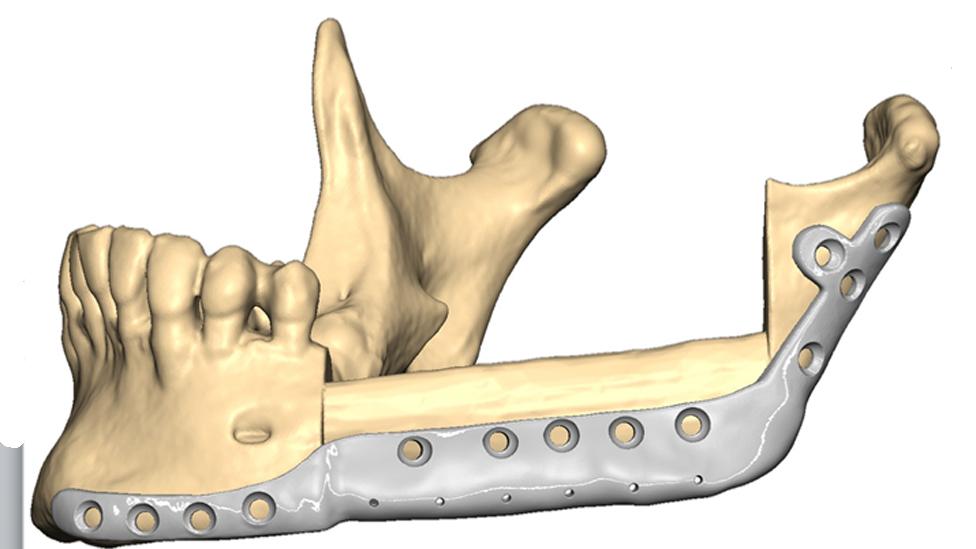
3D printed plate
- Published5 July 2018
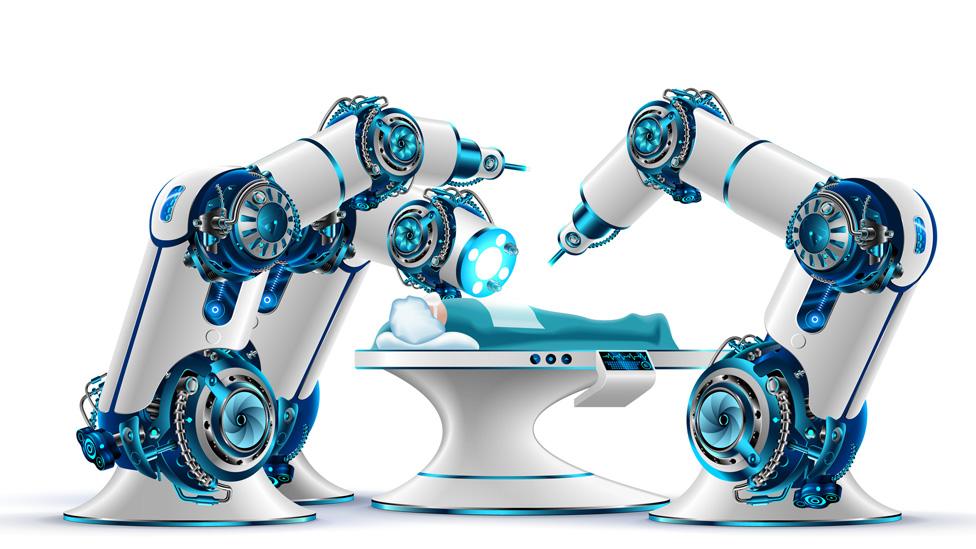
- Published16 February 2018
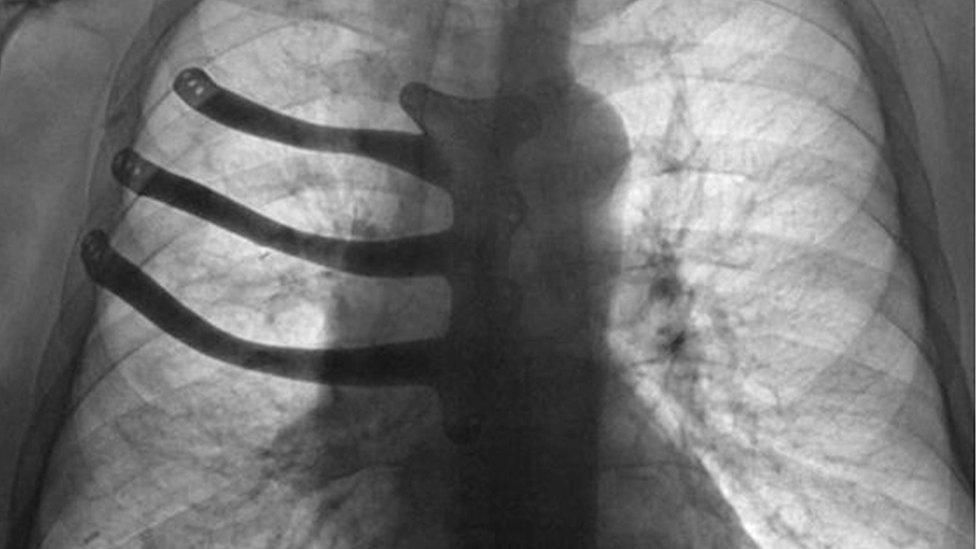
- Published13 November 2013
